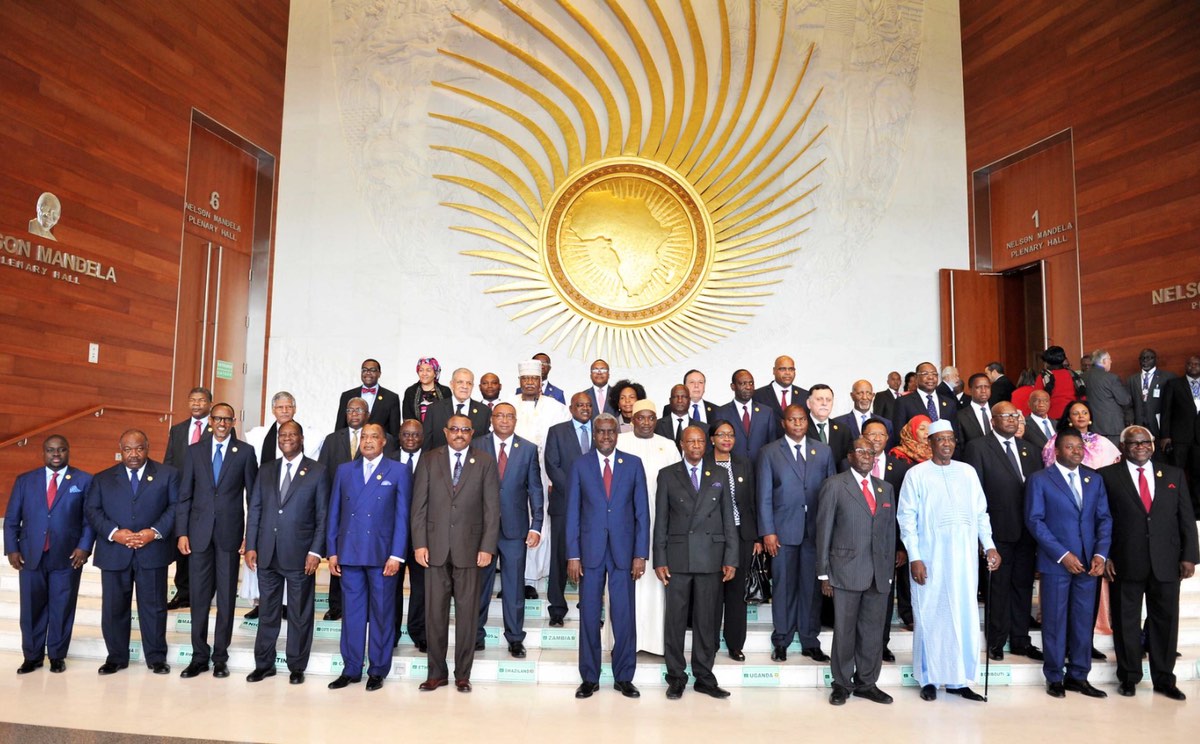The Opinion Piece entitled “Israel Must not have a place at the African Union until it ends its occupation of Palestine” by Ambassador Hanan Jarrar, published in the Mail and Guardian on 02 September 2021, rallies African countries to disassociate themselves from Israel and attempts to block Israel from taking an observer’s seat at the African Union. The decision by the African Union to offer Israel observer status is irreversible.
The admission of the State of Israel on 22 July 2021 as an observer state at the African Union, notwithstanding dissent from at least four African countries, is a significant recognition of the strategic centrality of the State of Israel to African countries. The State of Israel has diplomatic relations with more than two-thirds of African countries.
Globally, the State of Israel is an active member of the family of nations committed to the improvement of the wellbeing of humanity across the globe. In 2014, the United Nations adopted an Israeli-sponsored resolution entitled “Agricultural Technology for Sustainable Development”, outlining the beneficial impact the adoption of Israeli agricultural technologies can have towards achieving food security and nutrition, poverty eradication, empowering women and ensuring environmental sustainability in developing countries. This resolution promoted more accessible agricultural technology in areas stricken by poverty, drought and hunger in developing countries.
In 2015, the United Nations General Assembly also adopted another Israeli-sponsored resolution entitled “Entrepreneurship for Development” which marked the first time the United Nations formally recognized entrepreneurship as a major tool in reducing poverty, creating sustainable development, and reinvigorating the environment. This resolution encouraged private and public sector entrepreneurship as the best way to deal with the challenges of poverty and job creation in developing countries. In so doing, the State of Israel envisions a world in which those living in poverty are empowered to improve their own lives.
The two Israeli-sponsored United Nations Resolutions passed overwhelmingly in 2014 and in 2015, and are situated within the following Sustainable Development Goals (SDGs):
- SDGs Goal number 2: End hunger, achieve food security and improved nutrition, and promote sustainable agriculture and the use of agricultural technology for sustainable development (UN General Assembly Israeli-sponsored Resolution on Agricultural Technology for Sustainable Development).
- SDGs Goal number 8: Promote decent work and sustained economic growth, higher levels of productivity and technological innovation, recognising entrepreneurship as a source of job creation towards the achievement of productive employment, and decent work, for all women and men by 2030 (UN General Assembly Israeli-sponsored Resolution on Entrepreneurship for Development).
In all measures, the two Israeli-sponsored United Nations Resolutions highlight the seriousness with which the State of Israel takes its global development responsibility towards achieving international sustainable and social-economic equity in developing countries.
With specific reference to Africa, both the former Prime Minister Benjamin Netanyahu and the former Israeli Ambassador to the United Nations Danny Danon on 22 September 2016 met with African leaders on the side-lines of the United Nations General Assembly to discuss Israeli innovations in Africa. Prime Minister Benjamin Netanyahu told African leaders “Africa excites our imagination; we would like to propose a friendship and a partnership with every one of your countries.”
On the 8 December 2016, a Joint Declaration of Intent was signed in Jerusalem between MASHAV and ECOWAS to promote bilateral agricultural cooperation in accordance with the UN 2030 Agenda for Sustainable Development.
In practice, Israel is engaged in implementing various development interventions in several African countries through state actors such as MASHAV, which is the international development Agency of the State of Israel, as well as various non-state research institutions such as the Arava Institute, all contributing, for example, towards the realisation of food security through the implementation of innovative, high-tech agricultural irrigation interventions in arid and semi-arid in areas in African countries, such as in the Turkana region of Kenya.
In addition to implementing various development interventions on the African continent the State of Israel is also actively involved in fighting disease outbreaks on the African continent. In 2014, the State of Israel was applauded by the United Nations for the country’s significant per capita contribution to the fight against Ebola in African countries. In appreciation of this, the African Union presented a plaque as a symbol of appreciation of the Israeli Ambassador to Ethiopia, Rwanda and Burundi, Mrs. Belaynesh Zevadia, in February 2016.
The serious commitment of the State of Israel towards achieving international sustainable socio-economic equity, and also in the fight against disease outbreaks on the African continent, unequivocally, signifies the commitment of the State of Israel towards improvement of wellbeing.
The accession to the observer status of the State of Israel at the African Union is a clarion invitation for more African countries as well as universities to join the partnership and enjoy both enhanced diplomatic and research collaborations with the state of Israel and Israeli research institutions.

